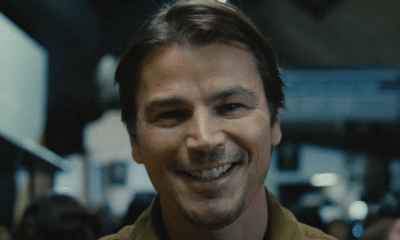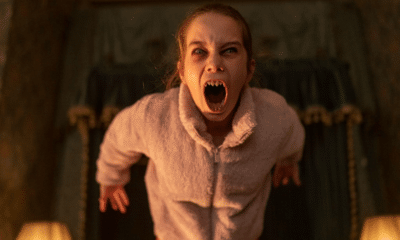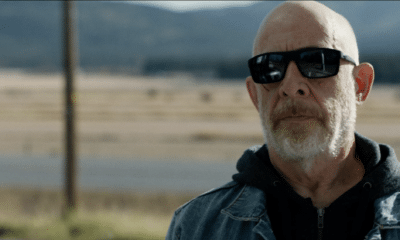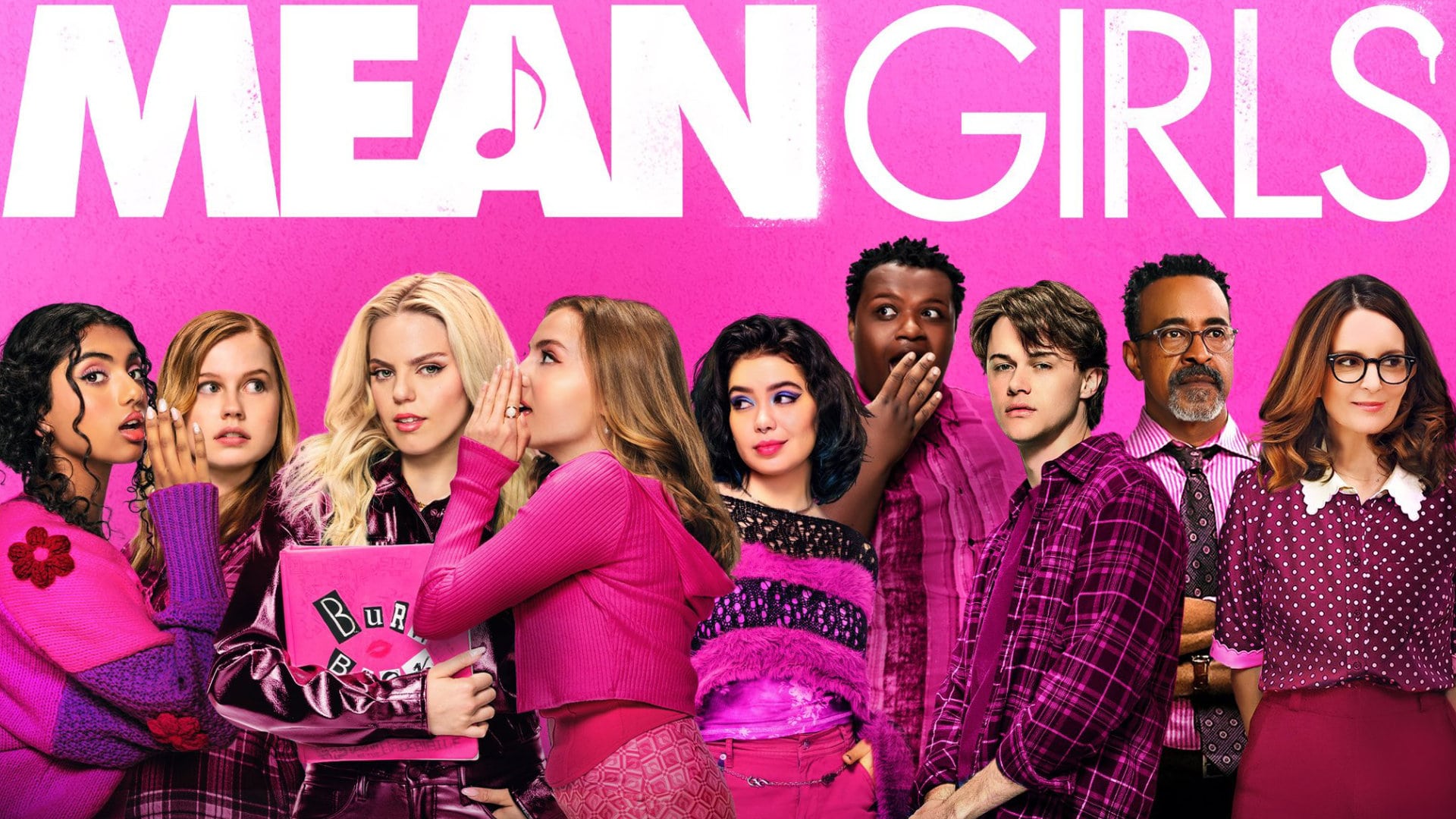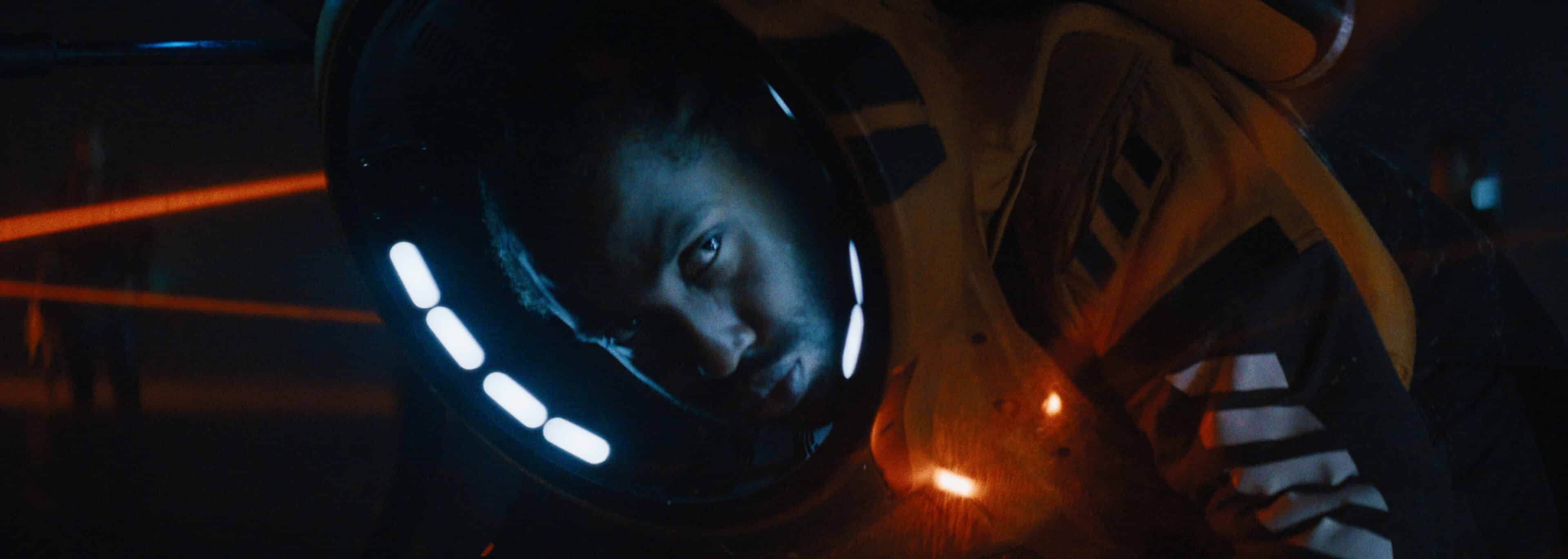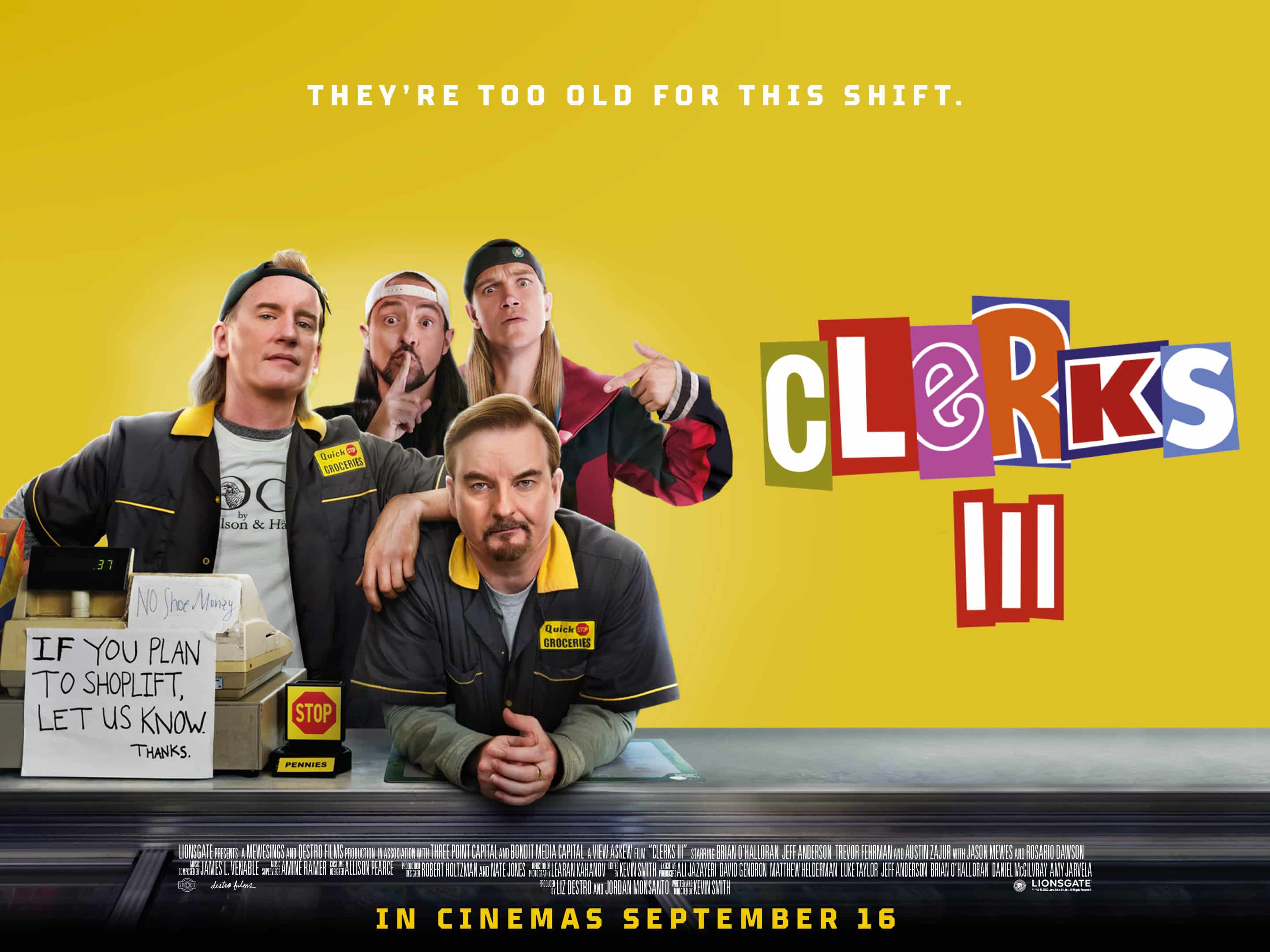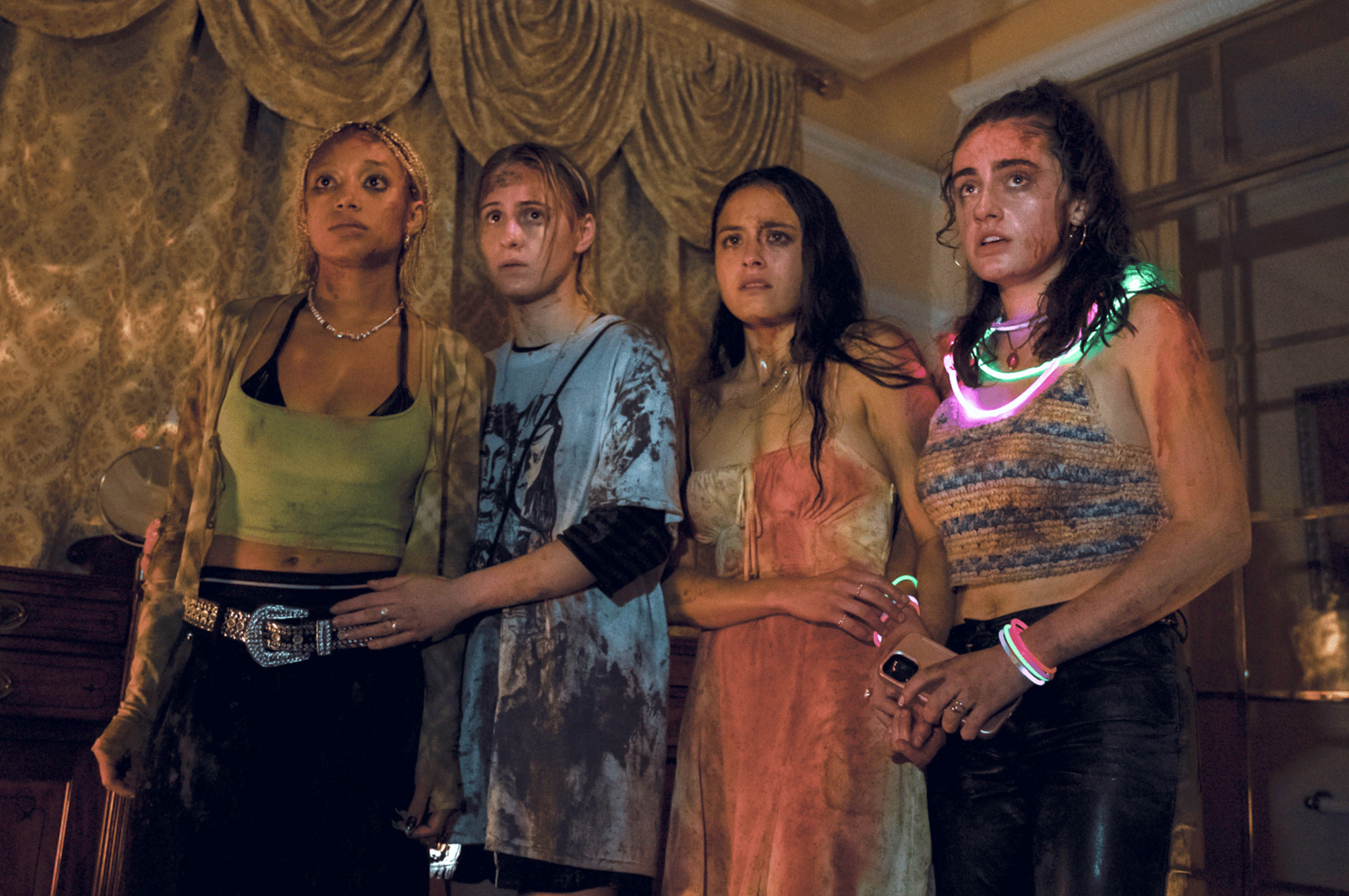INTO THE WOODS follows our favourite fairy tales – Cinderella, Rapunzel, Jack and The Beanstalk, Little Red Riding Hood – in a twist on the usual ‘happily ever after’ as a witch (Meryl Streep) tasks a childless baker and his wife with procuring magical items from classic fairy tales to reverse the curse put on their family tree.
We spoke to Tony Award winning writer and director James Lapine about his role in INTO THE WOODS coming to life.
What drew you to adapting the musical into something as big as a Disney movie?
Uh… money? [laughs] No. The thing that was great about it was there were no constraints as there are when you do things on the stage. The fun part was taking something that we had dreamed up that had the limitations of having to be on the stage, and reimagining it visually to be able to do pretty much anything we wanted. It was a wonderful opportunity.
What was it like when you first saw the set?
Well, it wasn’t anything because I never saw the set. I never actually came to the UK to watch it being shot. For me as the writer, it was very—it was kind of—it was a really interesting experience to work so hard on it for almost a year—over a year—with the director [Rob Marshall]. Then he would show me occasionally stills and whatnot of things that they just—y’know, mood boards, where they show you the mood of what they’re looking for. So I was able to see what he and the art director were working on in terms of the visuals, but I never really got to see it until I saw the movie. And it was cool!
It was very exciting when I got to see what they had cooked up.
That being said, were there any challenges you faced going into the project? Considering the fact that you didn’t know if you were going to be on set or not.
Yes, because I would get calls periodically, and we would find that, ‘We can’t do this on set, we can’t do that because of either location difficulties or financial difficulties’. Consequentially, it required me as the writer to go back and reconceive the scene so that they could accommodate what locations we had or what shooting schedule was necessary.
I’ve seen the stage production, and I noticed that there are a lot of changes between the stage to screen. How did you approach which bits you wanted to cut and which bits you wanted to keep?
Well, the first thing you had to do was—you know, it’s a different time frame when you’re doing a movie versus when you’re doing it on stage. The first thing we knew was that it wasn’t going to be two acts. Once we decided to break up the two act structure, that was the first concern. Another concern was length, because the stage show is something like two and a half hours, and we knew the movie was only going to be two hours. Then you start looking at the material and deciding what’s essential in the story telling and what isn’t. It’s actually a deductive process almost, where you’re working backwards from the constraints that you’re dealing with. That’s how a lot of those decisions were made.
How involved were you in the rehearsal process that they had a few months before shooting, and any news from then?
Not at all. It was an interesting experience for me, because I had directed the earlier productions, and it was interesting to be not involved, and to turn it over to somebody else.
Were there ever any fears doing that? Was it a moment of, ‘No, this is my baby..?’
No. Because it’s not a new baby. If it were a newborn, I’d be concerned. That baby is like twenty-five years old. In fact, it’s the same age as my daughter. So, yeah, I didn’t really have anything like that. I loved Rob, and I trusted him, and I knew he was going to be very respectful of the material, which he was. I wasn’t worried at all. By the time I was finished writing it, I was, believe me, more than happy to let them go off and do what they do. I’ve really had my fill, so that was fine.
In terms of the actors and actresses, did you have any say in who they cast in certain roles because you were so familiar with the piece?
We chatted about who was going to be cast, but no, we didn’t really—it was really left up to the studio and Rob Marshall, and we were consulted in a sense that they would say, ‘we think we’re using this one or that one’. I don’t remember us having much to say about it other than that it sounds like a good idea. Yeah, we were consulted, and y’know, we knew generally who the talent pool was anyway, so that was useful.
Were there any performances that stood out to you?
The thing is… When you get to have Meryl Streep say your words…. Absolute, from there… When you start there—and that’s where we started from, with her getting involved in the movie—there really wasn’t any real worry. I was thrilled to know that she was going to be doing the project, and speaking my words, as it were. So that was exciting.
That must have been pretty darn cool.
Yeah. Pretty darn cool is pretty much how I would put it.
In comparison to the first time you ever worked on INTO THE WOODS on stage, what was like working on something as big this with a much bigger budget? You said there was a lot more freedom, but what was it like personally?
Yeah, it was good. But sometimes we wrote scenes that took place—like we were going to the Ball, we were going to go up to giant’s kingdom, and then, because of budget and making choices, it was interesting, because as much fun as it was to write, and to have the possibility of seeing it, you realise it wasn’t necessary. There were some interesting things about what ended up in the movie and what didn’t, and I learned a lot from that, actually.
Were there any bits from the original that you wanted to push to have in the film?
I would say the hardest thing, the most painful thing to lose was a song called No More, that comes at the end. On the other hand, we were going to an audience that—if they want to see the stage show, they see the stage show. I felt that we made the right choice, because it worked very well, what did for the movie. That’s what mattered, and if somebody wants to go back, as you did, and watch the original show, they could see what we cut and what we didn’t cut. You can’t be too precious about these kinds of things.
We were huge fans, Chris Pine singing Agony was an absolute delight.
That was pretty sublime, right?! Who knew that he was so funny and that he sang so well?
Were you there for any of the auditions?
Nope. Wasn’t there. You don’t really want a room full of people when you’re doing something like that. The only person I was around for was when Meryl sang the new song, No More. That was very interesting to watch. That was the only part of the experience that—the writer is a whole other battle axe.
Looking at the DVD and Blu-Ray release, what can fans expect in terms of extra footage and scenes?
It’ll be fun to see Meryl doing her song, which unfortunately got cut from the movie. So I think, one of the big, exciting aspects of that is seeing the outtake from that in the movie. That’s the thing that DVD’s allow you to do. They allow you to get behind the scenes and in the interviews and all that stuff. If you can’t get enough of INTO THE WOODS, this is the DVD for you.
When they went with the decision to remove Meryl’s performance of No More, was there a specific reason why they chose to cut it?
We did it, and they tested it, and it held up but—the thing about INTO THE WOODS is it’s a very tightly plotted show. It’s been our issue with it all along. We’ve had other songs that have been written and added in and then taken out. We discovered that you can’t screw with it. It’s built like a tight farce or something, and you can’t mess with the plot, and you can’t mess with the drive of the storytelling. The thing about Meryl’s song was that it was great, but it was also slowed down the story, and also, I felt, as did others, it diminished a little bit her big song that comes shortly thereafter. So having her have two songs like that in a row didn’t do her or anybody else any favours.
This was one of the bigger cinematic things that you’ve worked on. Do you have any future plans to adapt another Sondheim piece into a cinematic adventure?
I don’t have any immediate plans, but I’d like to see a movie made of Sunday in the Park with George.
How about Merrily we Roll Along...
That would be really cool, I agree with you there. I didn’t write it, and they’d probably get someone else to direct it. Stephen Sondheim—I love the man and everything he does.
Were there any funny moments during writing the screenplay before you sent it off that stood out to you?
Oh dear… stand out moments… Yes! We had a reading of the movie, where Rob Marshall assembled the cast, and they literally did a read through of the movie, almost like a presentation, like a little show, and the studio execs came—that was pretty exciting.
What did you take away from working on the film?
I learnt a lot. I learnt a lot about directing big movies, and I was so impressed with Rob Marshall, the director, in his ability to navigate so many different personalities. It’s like an invasion. You have to just peep, and be a general, and be there for all aspects for your team – your army – to get the damn thing made. That was pretty interesting to watch.
INTO THE WOODS is out now on Blu-ray & DVD.
Hannah is many things, but what Hannah is not is a person who knows how to write a decent bio. A lover of all things cinema (shocker), an avid appreciator of puns, and an all-around self-plot-spoiling idiot. Known for not shutting up about Star Trek - or anything related to film, upon further deliberation.

Latest Posts
-


Film Trailers
/ 20 hours agoM. Night Shyamalan’s ‘Trap’ trailer lands
Anew experience in the world of M. Night Shyamalan.
By Paul Heath -


Film News
/ 1 day agoFirst ‘Transformers One’ teaser trailer debuts IN SPACE!
The animated feature film is heading to cinemas this September.
By Paul Heath -


Film Reviews
/ 1 day ago‘Abigail’ review: Dirs. Matt Bettinelli-Olpin & Tyler Gillett (2024)
Matt Bettinelli-Olpin and Tyler Gillett direct this new horror/ heist hybrid.
By Awais Irfan -


Film Trailers
/ 2 days agoNew trailer for J.K. Simmons-led ‘You Can’t Run Forever’
A trailer has dropped for You Can’t Run Forever, a new thriller led by...
By Paul Heath

